第40章
The very mention of Coleridge makes one think of Wordsworth.They had a Damon and Pythias friendship.The Wordsworths were poor; they had only seventy pounds a year, and they were not ashamed.Coleridge called them the happiest family he ever saw.Wordsworth was not narrowly a Christian poet, he was not always seeking to put Christian dogma into poetry, but throughout he was expressing the Christian spirit which he had learned from the Bible.His poetry was one long protest against banishing God from the universe.It was literally true of him that "the meanest flower that grows can give thoughts that too often lie too deep for tears." If this were the time to be critical, one would think that too much was sometimes made of very minute occurrences; but this tendency to get back of the event and see how God is moving is learned best from Scripture, where Wordsworth himself learned it.If you read his "Intimations of Immortality," or the "Ode to Duty," or "Tintern Abbay," or even the rather labored "Excursion," you find yourself under the Scriptural influence.
There remains in this Georgian group the great prose master, Walter Scott.Mr.Gladstone said he thought Scott the greatest of his countrymen.John Morley suggested John Knox instead.Mr.Gladstone replied: "No, the line must be drawn firmly between the writer and the man of action-- no comparison there."[1] He went on to say that Burns is very fine and true, no doubt, "but to imagine a whole group of characters, to marshalthem, to set them to work, and to sustain the action, I must count that the test of highest and most diversified quality." All who are fond of Scott will realize how constantly the scenes which he is describing group themselves around religious observances, how often men are held in check from deeds of violence by religious conception.Many of these scenes crystallize around a Scriptural event.Scott's boyhood was spent in scenes that reminded him of the power the Scripture had.He was drilled from his childhood in the knowledge of its words and phrases, and while his writing as a whole shows more of the Old Testament influence than of the New, even in his style he is strongly under Bible influence.
[1] Morley, Life of Gladstone, vol.iii, p.424.
The preface to Guy Mannering tells us it is built around an old story of a father putting a lad to test under guidance of an ancient astrologer, shutting him up in a barren room to be tempted by the Evil One, leaving him only one safeguard, a Bible, lying on the table in the middle of the room.In his introduction to The Heart of Midlothian, Scott makes one of the two men thrown into the water by the overturned coach remind the other that they "cannot complain, like Cowley, that Gideon's fleece remains dry while all around is moist; this is the reverse of the miracle." A little later a speaker describes novels as the Delilahs that seduce wise and good men from more serious reading.In the dramatic scene when Jeanie Deans faces the wretched George Staunton, who has so shamed the household, she exclaims: "O sir, did the Scripture never come into your mind, 'Vengeance is mine, and I will repay it?' " "Scripture!" he sneers, "why I had not opened a Bible for five years." "Wae's me, sir," said Jeanie--"and a minister's son, too!" Anthony Foster, in Kenilworth, looks down on poor Amy's body in the vault into which she has fallen, in response to what she thought was Leicester's whistle, and exclaims to Varney: "Oh, if there be judgment in heaven, thou hast deserved it, and will meet it! Thou hast destroyed her by means of her best affections--it is the seething of the kid in the mother's milk!" And when, next morning, Varney was found dead of the secret poison and with a sneering sarcasm on his ghastly face, Scott dismisses him with the phrase: "The wicked man, saith the Scripture, hath no bonds in his death."His characters use freely the familiar Bible events and phrases.In the Fortunes of Nigel, a story of the very period when our King James version was produced, Hildebrod declares that if he had his way Captain Peppercull should hang as high as Haman ever did.In Kenilworth, when Leicester gives Varney his signet- ring, he says, significantly: "What thou dost, do quickly." Of course, Isaac, the Jew in Ivanhoe, exclaims frequently in Old Testament terms.He wishes the wheels of the chariots of his enemies may be taken off, like those of the host of Pharoah, that they may drive heavily.He expects the Palmer's lance to be as powerful as the rod of Moses, and so on.
Scott was writing of the period when men stayed themselves with Scripture, and his men are all sure of God and Satan and angels and judgment and all eternal things.His son-in- law vouches for the old story that when Sir Walter was on his death-bed he asked Lockhart to read him something from the Book, and when Lockhart asked, "What book?" Scott replied: "Why do you ask? There is but one book, the Bible."All this is scant justice to the Georgian group; but it may give a hint of what the Bible meant even at that period, the period when its grip on men was most lax in all the later English history.